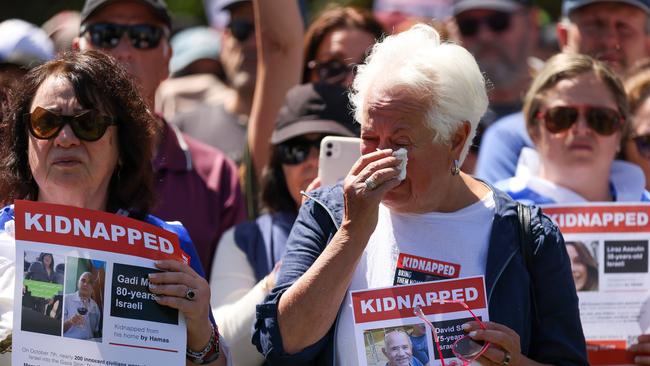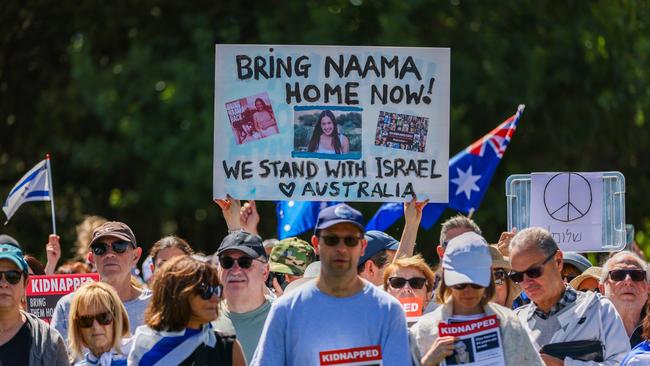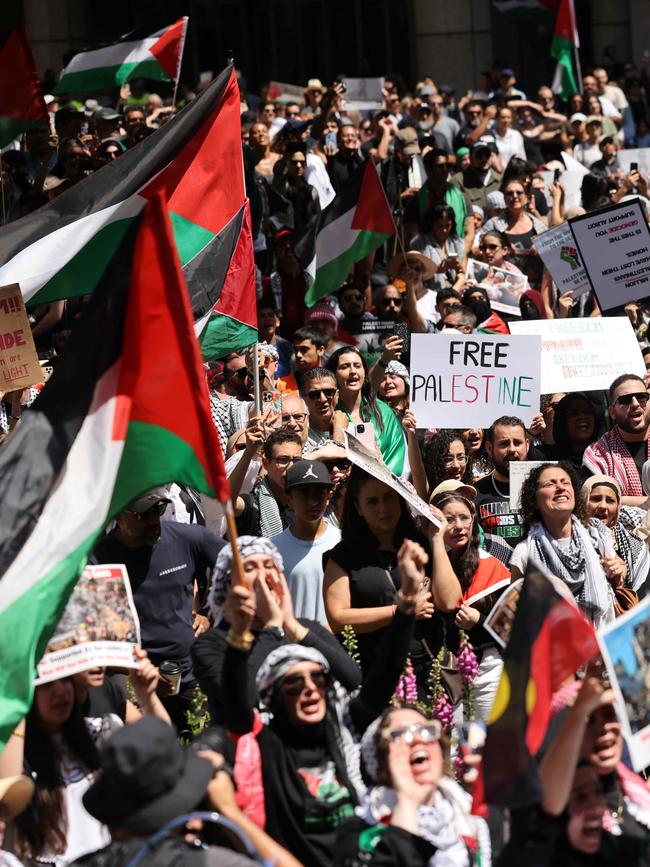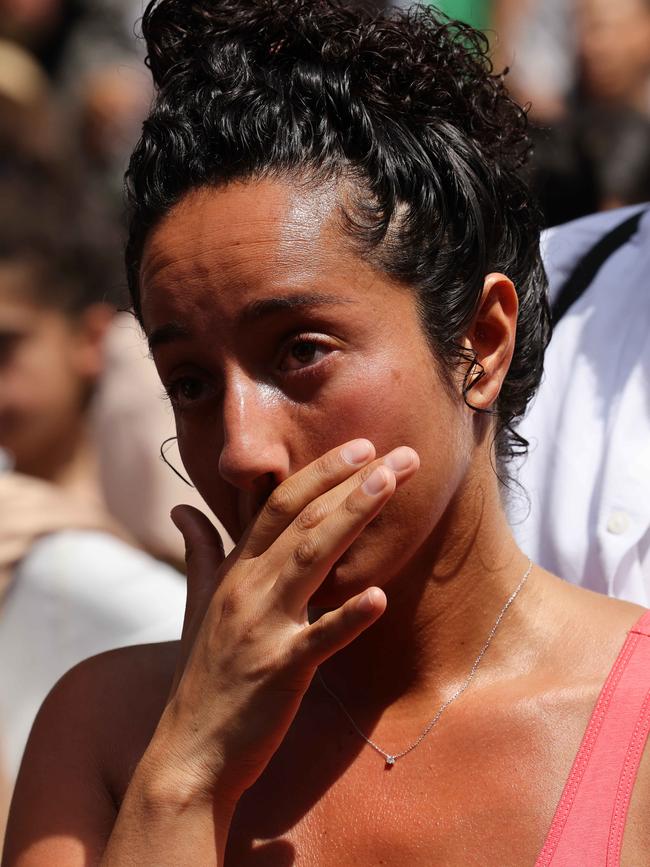Psychiatrists warn of ‘invisible’ impacts of Israel war on Jewish, Palestinian communities
Increased hate speech, graphic social media content and ‘collective historical trauma’ will affect local Jewish and Palestinian communities for years to come, mental health clinicians warn.

Mental health clinicians are already seeing the psychological effects of the Israel-Gaza war, as experts warn of the “deleterious impacts for years to come” on local Jewish and Palestinian communities from increased hate speech, graphic social media content and “collective historical trauma”.
Foremost Australian psychiatry researcher Susan Rees used Australia’s leading medical journal to urge health practitioners to “be aware of the complexity of the traumatic stress reactions that conflict-affected communities can manifest under these circumstances”.
The University of NSW professor, who specialises in refugee mental health, has called it the “invisible wounds of the Israel-Gaza war in Australia”.
“Health professionals may expect to see a higher number of presentations with acute traumatic disturbance, re-emergence of previously controlled mental illness, and presentations for somatic and unexplained illnesses,” she wrote in the Australian Medical Journal.
“The threat to mental health status is higher for those who have had family members killed, harmed or gone missing, and for those with previous exposure to war, including in Lebanon, Iraq and Syria.”
Professor Rees advised mental health advocates against taking a partisan position on the conflict and instead promote an understanding of the mental distress among those affected by the war. “The consequences of not advocating for bipartisan human rights has already been felt in Australia by way of racialised hate speech and racism, including anti-Semitic sentiment and verbal assaults targeting women wearing hijabs,” she said.

Mental health practitioners had “no doubt” the war was having an impact on the mental wellbeing of affected communities.
Clinical psychologist Kyla Edinburg said her Jewish clients had expressed heightened fear and anxiety as a result of growing anti-Semitism, and some had brought up the hateful comments spoken in the community such as “gas the Jews”.
“People aren’t necessarily talking about what they think is right and wrong, they’re talking about the fear of being attacked physically or verbally in some sort of anti-Semitic attack,” she said.
“These kinds of attacks were unheard of for a lot of their lives in the modern Western world.”


Ms Edinburg said clients were obsessively looking to social media and newspaper articles, and had “a lot of anxiety about the truth, and how they perceive the truth is being distorted”.
She said it would be hard to “undo the experience of anti-Semitism” even once the war was over.
“It is hard to put that back into your mind and pretend that doesn’t exist,” she said.
“How can they ever pretend this doesn’t exist, that they’re safe in this world, even once it’s over.”
Psychiatrist Manjula O’Connor said it was a “very traumatising time” for people who had previous exposure to conflict in their home countries, such as those from Iraq and Kurdish refugees.
Dr O’Connor, whose focus is in migrant mental health and trauma therapy, described a refugee client who grew up on the Iran-Iraq border, and has complex PTSD as a result of trauma as a child. She said her treatment had taken a dive due to exposure to this conflict.






To join the conversation, please log in. Don't have an account? Register
Join the conversation, you are commenting as Logout